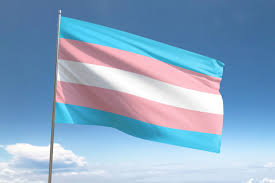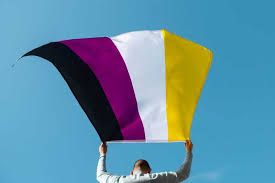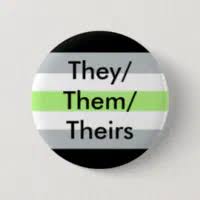…in celebration of Transgender Awareness Week 2024
- Claire Teal

- Nov 13, 2024
- 4 min read
At Kōwhai, we are proud to celebrate and support Aotearoa’s diverse transgender communities through the counselling and psychoeducation services we offer. This week (13 - 19 November) is Transgender Awareness Week, so what better time to do our bit to share information and awareness too?!
If you have landed here because you are looking for information or advice, there are some amazing organisations across the country run by and for transgender people that provide all sorts of information and advocacy, including for whānau, partners and the wider community. I’ll provide links to some of them at the end of this post. In a counselling sense, these are also the people Kōwhai can (and does!) support; transgender people, wherever they are on their journey, and allies seeking to provide the best care they can to transgender people in their lives. Research tells us that transgender people (particularly young people) who are supported by their whānau have significantly better mental wellbeing than those who do not have this support. If someone in your whānau is exploring their gender identity or has come out as transgender, it is always ok to reach out for help on how to support yourself as you support them.
So, what does the word ‘transgender’ mean? Basically, transgender or gender diverse means that you don’t / don’t only identify with the gender you were assigned at birth. You may have heard the term ‘cisgender’, too. A cisgender person is someone who does identify with the gender they were assigned at birth. Some transgender people choose to transition; that is, they take steps to align outwardly with their inner gender identity. Transitioning can happen in a variety of ways and is an entirely personal journey. Gender is different to sexuality; transgender and cisgender people can experience exactly the same diversity of sexualities. The term transgender can also describe other identities, such as:
Non-binary (a broad term for people who find they do not fit entirely into ‘female’ or ‘male’ gender binaries, find they are a mix of both, find their gender changes, or don’t feel any gender at all).
Gender fluid (a term for people who have different gender identities at different times. This can include multiple genders at once, single gender identities or no gender identity, across time frames that can vary). Some gender fluid people prefer the terms genderqueer, bi-gender, multigender or polygender.
Agender (a term for people who have no gender identity or a neutral gender identity).
Irawhiti (a kaupapa Māori term referring to all transgender people).
Did you know that historians have found evidence that transgender people were active in society from as early as 5000BC? Te Ara / The Encyclopedia of New Zealand notes “[a]s is the case with many indigenous peoples throughout the world, transgender people hold a revered position within Māori society…as holders and transmitters of ancestral knowledge.” Despite this esteemed history, transgender people today face horrifying rates of discrimination and abuse, with ⅔ of transgender people in Aotearoa reporting they have been the victim of this. This is one of the reasons why being an ally to transgender communities is so important. Allies do more than just say they affirm trans people; they stand with transgender communities to fight against transphobia. What might this look like..?
Listen to a diverse range of trans voices (transgender communities are hugely diverse!) and notice who is being left out of having a say on matters you’re involved in.
Use your pronouns when you introduce yourself (and on your email signature, zoom avatar, etc.).
Avoid making assumptions about other people's identity based only on their appearance. Gender expression may not align with identity and transitioning takes time, so we can never tell where someone is on their journey just by looking at them.
Speak up when you see transphobia occurring.
Elevate the voices of transgender people and seek their leadership on how to make spaces trans-inclusive (for example, consult a transgender-led organisation prior to speaking to your child’s school about possible changes there).
Maybe the most important point I want to convey through this blog is that there are support services available for you if you are transgender yourself, or if somebody you care about is. You deserve to be able to access the help you need in a safe and respectful way, no exceptions. This is by no means an exhaustive list, but here are some places you may find helpful in your search for advice and information:
If you would like to talk to someone, you can get in touch with the Kōwhai team of counsellors here. You can also read about us, so you know a bit about us before you make an appointment.

Our counsellor Claire, a queer cisgender woman who came out later in life, offers a safe, trans-inclusive space to help you explore your identity, navigate emotions, and plan your next steps. Whether you're questioning your sexuality or gender, coming out to loved ones, or finding your community, Claire is here to walk with you.










Comments